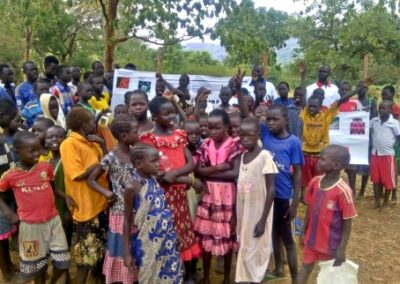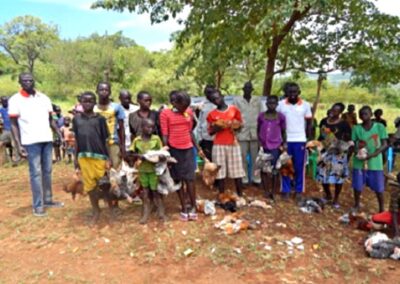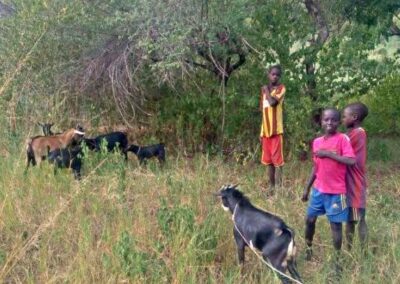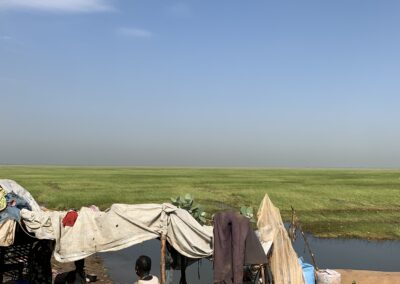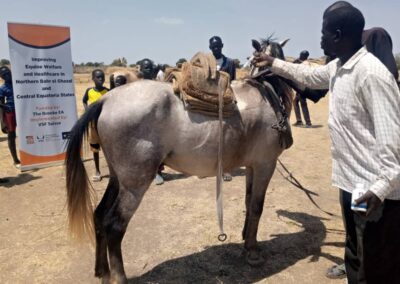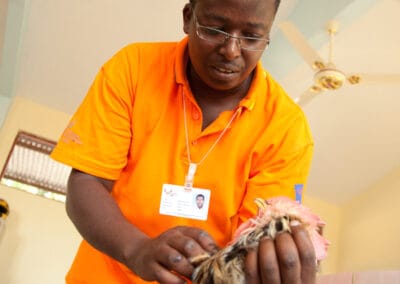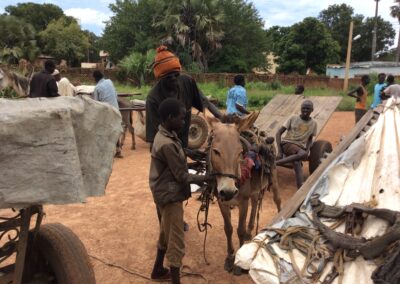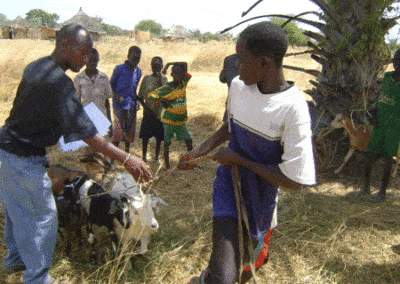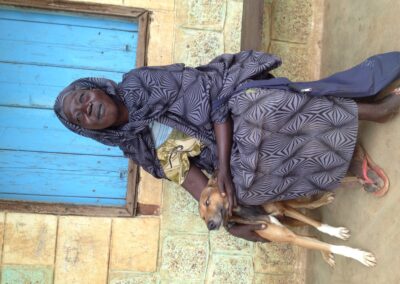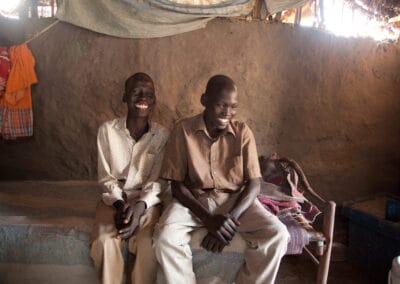Reintegration Assistance to Conflict Affected Children and their Families (Project SERACAF Phase II)
Project Overview
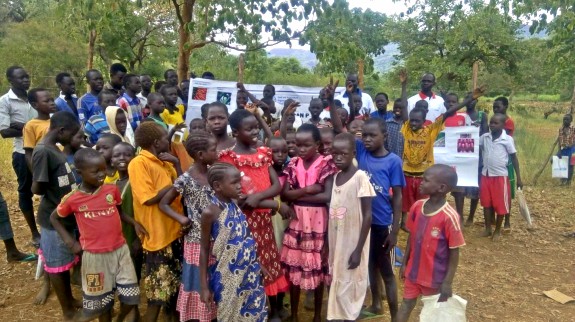
Country
South Sudan
Project name
SERACAF Phase II
Project status
Completed
Projektdauer
| Start: | 18.02.2016 |
| Ende: | 18.08.2016 |
| 6 Monate |
Budget
In collaboration with
UNICEF
Project area
Topics
Tags
Background
In 2015, thousands of children detained by armed forces were released under the framework of an UNICEF action plan with the support of the local authorities. It paved the way for multi-sectorial and integrated socio-economic reintegration programs for children formerly associated with armed forces.
For a successful reintegration, it is crucial to address food security and livelihood opportunities, and this is where Vétérinaires Sans Frontières Suisse intervenes.
Project
First, the SERACAF Project has raised awareness on children’s rights. Over 1900 community members have attended the sessions on child protection that we conducted; parental responsibilities, risks of recruitment and use of children in armed conflicts, but also the roles of community as well as government and institutions were discussed.
Furthermore, the commemoration of the Day of the African child was organized; the event was attended by more than 1300 children and their parents along with county officials and partner organizations.
Another part of the project has comprised livestock training and distribution of small ruminants and chicken to the child beneficiaries – the advantage of poultry being that they are easily manageable, scavenge freely and can also feed on leftovers. In this perspective, children have been trained on poultry keeping and production. In the meantime, caregivers and Community Animal Health Workers have been trained on poultry management, production and disease control for them to provide poultry healthcare and production management services to the children and their community.
Along with chicken and goats, livelihood kits have been distributed to the children. The kits include crops (maize, sorghum, cow peas), vegetable (tomatoes, cabbage, amaranth, eggplant, etc.), seeds as well as fishing gear. This initiative has been extremely appreciated by the beneficiaries since vegetable seeds matured fast.
Moreover, the teenagers over 14 years of age have learned agricultural techniques and we have helped them to establish economically viable plots. In this respect, field visits have revealed that the members of the communities have learned a lot as they have embarked on the preparation of their own plots.
The involvement of various stakeholders (not only the concerned children but also caregivers, local authorities, communities, etc.) in this project has enhanced participation and ownership. The reintegration of children formerly associated with armed forces into their families and communities is a long-term process, and as a part of this journey the SERACAF project has already proved an effective way in advocating child protection, in addition to improving food security and livelihood opportunities of vulnerable girls, boys, men and women.

